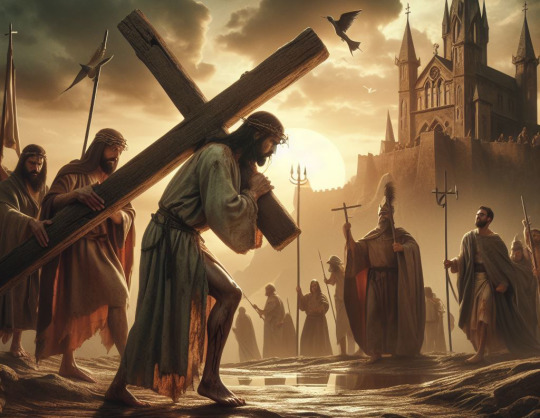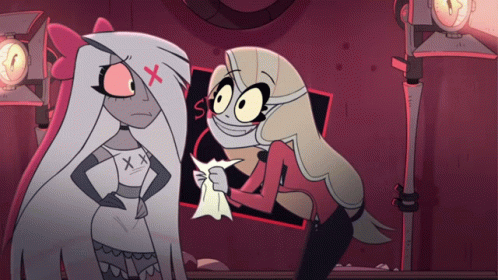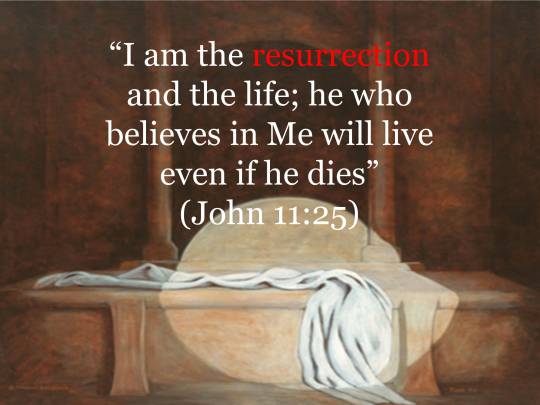#Atonement in Christian Theology
Text
Who Crucified Jesus?
The question is sometimes raised as to who crucified Jesus? According to Chafer, “Closely related to the contrast between the divine and human sides of Christ’s death, is the question: Who put Christ to death? As already indicated, the Scriptures assign both a human and a divine responsibility for Christ’s death.”[1] According to the testimony of Scripture, Jesus’ death on the cross was the…

View On WordPress
#A crucified Messiah#Atonement in Christian Theology#Biblical Accounts of Christ&039;s Crucifixion#Biblical Interpretation of Crucifixion#Biblical Poetry on Atonement#Christian Atonement Theories#Christian Poetry on the Crucifixion#Christian Salvation and Sin#Crucifixion of Jesus#Did Gentiles crucify Jesus#Did Jesus willingly go the cross?#Did Jews crucify Jesus#Did Romans crucify Jesus?#Did the Jews crucify their Messiah?#Divine and Human Responsibility in Christ&039;s Crucifixion#Divine Plan for Salvation#Free Will in Jesus&039; Sacrifice#Hypostatic Union of Christ#Jesus crucified#Jesus&039; Willing Sacrifice#Jewish and Roman Collaboration in Jesus&039; Crucifixion#Personal Reflection on Christ&039;s Sacrifice#redemption through Christ#Role of God the Father in Jesus&039; Death#Sacrificial Nature of Christ&039;s Death#Satan&039;s Influence in the Crucifixion#Satanic Influence in Scripture#The Cross in Christian Theology#The Messiah crucified#Theological Perspectives on Christ&039;s Death
1 note
·
View note
Text
I reject original sin because it is Anti Christ
I reject penal substitutionary atonement because it's Anti Trinity
I reject eternal conscious torment because it's Anti Scriptural
I do not reject these doctrines because I have a heart issue preventing me from affirming biblical truth. It is precisely because I desire to conform myself to the Truth of Scripture that I deny these doctrines.
#facinating conversation with my pastor on how these are tier 1 issues that determine ones salvation#christianity#Jesus#original sin#bible#penal substitutionary atonement#atonement#theology#religion
8 notes
·
View notes
Text
i read a quite interesting book in my undergrad by a Jewish scholar on how the binding of isaac is a subversion of pagan myths about sacrificing children for the prosperity of your nation, in proving quite definitively that this is something God doesnt and will never want. and he went on to talk about how by reading this story as foreshadowing of Jesus' crucifixion, Christians actually revert back to the pagan myth of blood sacrifice being skewered in the first place!
which i think is entirely true - unless we understand Jesus to be God, in which case it's fundamentally flipping the script all over again. it's no longer 'humans scramble to kill their children to appease an angry God', it's 'God is willing to be vulnerable and die for the sake of reconciling with wayward humans'. it smashes the idea we need human sacrifice to appease an angry God because that angry God does not exist; he's too busy being found in human form and dying miserably to reach out to his children. the crucifixion is not an offering to God; it's an offering by God. God is the subject, not the object. anyway that's just Reason #43784 why a robust understanding of the Trinity is good and helpful and not just abstract theology
#now tbf many people do understand Jesus to be God and still push penal substitutionary atonement constantly#which i dont even think is an inherently bad or useless lens for looking at it (in the same way that say even tho we dont#believe God ever truly abandons someone there is something emotionally true in the psalmist's cry of dereliction etc)#but i think generally it's not helpful bc it divides the Father against the Son and makes God seem a bit incoherently two-faced#christianity#christian#religion#theology
17 notes
·
View notes
Text
There is no monopoly on salvation. God is for everyone.
4 notes
·
View notes
Text
5 Shocking Reasons Your Preacher Isn’t Preaching the True Gospel (And What You Can Do About It)
1. Preaching Works Instead of Grace
– If your pastor emphasizes working harder, giving more, or doing more to “earn” God’s favor, they’re missing the point. The true Gospel is about salvation by grace through faith, not a performance checklist.
2. Using Fear as a Control Tactic– The Gospel is good news—so why does your church rely on fear of hell to keep you in line? Jesus preached love and…
#JesusWasntJoking#Calvinism#Calvinist beliefs#Calvinistic church#Christian life#Christian teaching#Christian theology#church accountability#church beliefs#church built on the rock#church discipline#church fellowship#church mission#faith#gift of salvation#grace in church#irresistible grace#Jesus as the cornerstone#Jesus Christ#Jesus&039; words#limited atonement#personal gain in church#personal relationship with Jesus#Peter’s vision#predestination#reformed theology#religious truth#repentance and forgiveness#salvation#salvation by grace
0 notes
Text
Comparing Total Depravity: LDS vs. Reformed Theology
According to LDS teachings, while humanity inherited a fallen state due to Adam and Eve's transgression, there's also an inherent potential for goodness within every individual. They emphasize the profound role of Jesus Christ's Atonement
Have you ever wondered how different Christian denominations understand the concept of human nature? One such belief is the doctrine of Total Depravity, which claims that humanity is inherently sinful and utterly incapable of good apart from divine grace. While many Protestant and Evangelical Christians adhere to this notion, Latter-day Saints (LDS) offer a different perspective.
LDS theology…
#Atonement#Bible#Calvinism#Charles H. Spurgeon#Christianity#Doctrines#faith#God#Grace#Human Nature#Jesus#Jesus Christ#John Piper#Joseph Smith#Moral Agency#Reformed Theology#scripture study#Total Depravity
0 notes
Text
"Did Christ Die for Me?"
The Conversion of St. Paul, by Gustav Dore, 1866. From Meisterdrucke.us
Sweat drips from the walls of a small basement packed with six dozen high school students. The room smells of raw fish and socks in the aftermath of several wild games, but the sounds of screaming girls and laughing boys has given away to a single voice. A Young Life leader is giving an impassioned talk about Jesus’ death on…

View On WordPress
#academic#Christianity#definite atonement#evangelism#Faith#general atonement#God#gospel proclamation#Jesus#Patrick Quinn#preaching#Reformed theology#religion#salvation#scholarly#seminary#systematic#Take Note Of This#theology#TNOT#universalism#who did Jesus die for
0 notes
Text
Exploring the Theology of Atonement
In the tapestry of religious beliefs, there exists a profound and deeply debated concept: atonement. It’s a word that has resonated through centuries, sparking theological discussions, inspiring countless interpretations, and underpinning the very bedrock of faith for millions around the world. In essence, atonement is the process of making amends or achieving reconciliation with God.
Imagine…

View On WordPress
#atonement#bible#christian#christianity#faith#god#godisgood#jesus#love#scripture#scriptureverse#Theology
0 notes
Text
There are numerous characters and stories - from Gideon in Gideon the Ninth to Donnie in Donnie Darko to Iron Man in The Avengers - who nearly or actually die to save others, and these characters are often regarded as a Jesus Christ analogue.
But are there any examples that work in the substitutionary atonement element of Christian theology?
Because other than Aslan in the Narnia books, I don't think I can think of any? Can you think of any examples?
0 notes
Text
Hazbin Hotel Has Better Theology Than Most Modern "Christian" Stories
As a Christian who was raised in a fundie cult and escaped to now have a far healthier and vital faith, I genuinely really like this show. The songs are bops. The characters are well crafted and interesting, and likable too. The art design is bizarre but appealing.
And, as a theology nerd who studied theology as part leaving said cult and also has since gotten papers published in theology, I'm actually fairly impressed by the show's handling of theology.

No, I'm not expecting the story to preach or even like, be explicitly Christian in a lot of ways. But it's taking a lot of the really beautiful aspects of Christian theology and re-contextualizing them in a way designed to provoke thought: by juxtaposing them with the antithesis of what you would think, by making demons heroes. In my opinion, this makes the beauty shine brighter.
Yeah, yeah, it's designed to be offensive and obscene in a lot of ways. Yet, it's never (thus far) mean-spirited. On the contrary, it seems to have a big, beating heart at its core that is perhaps best embodied by Charlie Morningstar, its protagonist and the daughter of Lucifer and Lilith.
Critique of the Church, with Caveats

The story works best with an interpretation that heaven isn't actually heaven or God (who has been conspicuously absent), but instead as a critique of the church. Specifically, the evangelical American church, and specifically, white evangelicals. (Same as She-Ra's premise, actually).
God's absence therefore makes sense, because while Christians do believe God is present as a living reality among us, we also can't like, see him physically now. So, God being not even mentioned in HH makes it seem more like a mortal reality rather than an immortal one. Honestly I kinda hope God doesn't appear in the story, not only because I think it could cross some lines (which is admittedly personal), but also because I don't see that the story really needs it.
Adam in particular reminds me of every "theobro" on Twitter (I'm not calling it what you want me to, El*n). Basically a dudebro coopting his supposed salvation to flex in an often misogynistic way, who doesn't realize that he has absolutely no love in him and therefore is actually a worse human being than everyone he condemns on the regular.
(Which is kind of why I'm expecting Adam to wake up in hell next season...)
Think red hats. And Mark Driscoll. And, I have a list of pastors. Sigh. They advocate for how "simple" Christianity is, except they themselves make it ridiculously complicated and don't even examine what they suppose is "simple" if it requires them to take the planks out of their own eyes. "Shallow" is a better description of what they actually preach.
But what sends people to hell or heaven anyways?
Eschatology and Atonement Theory

Hazbin Hotel combines a lot of theories, throwing not only the idea of a physical hell (albeit mixed with Dante's idea of what hell is the Inferno, but to be fair a lot of the church has adopted that idea too) but the idea of annihilation, which HH calls "extermination."
See, in Christianity, there's a lot of debate about hell. Like, since 2000 years ago. The reason is because a lot of Bible verses seem to indicate hell, but others indicate the eventual redemption and salvation of absolutely everything in the universe, so you have Christian universalism tracing itself back just as long. But, setting aside universalism, people who do believe in hell tend to fall into one of two camps:
Physical hell, aka suffering for eternity, or annihilation: the idea that souls that aren't saved end up annihilated, or snuffed from existence. HH combines both of them, wherein everyone lives in hell but then every so often heaven "exterminates" a certain number of sinners.
And then you also have Catholic purgatory, which is also adapted in HH in that... for most Christians, physical hell doesn't offer the ability to redeem yourself. Chance over, you're dead. But, Catholic Christianity, which draws on ideas of praying for the dead, has the idea that people can improve themselves or be prayed out of it and into heaven. This seems to be somewhat similar to the idea of Charlie's hotel, in that sinners can improve, redeem themselves, and rise to heaven.
And, I mean, it's already kinda worked. Sir Pentious acted out Jesus' words: Greater love has no man than this, that he lay down his life for his friends (John 15:13).

But anyways, the branch of theology that deals with the afterlife is eschatology. And Hazbin Hotel takes on a related form of theology as well, a type of theology I've only seen covered in stories once before (The House in Fata Morgana): atonement theory.
Atonement theory is something I remember well from my theology 101 class, as in I remember sitting with a friend and her turning to me and being like, "okay, so we know Jesus' death and resurrection give us eternal life, but we have no idea how or why?" To which the answer was "basically, yeah."
Most of the white, American evangelical church is very "penal substitutionary atonement," but the reality is that this theory has only been popular for the past few hundred years. It's also, imo, somewhat scripturally unsound. But there are a lot of other theories, and sometimes the theories overlap. Here's a fairly decent summary. (I'm in general a believer in Christus Victor.)
So how does atonement theory tie into Hazbin Hotel? Well, essentially the scene where Charlie and Vaggie are debating with Emily, Sera, Adam, Lute, and others in heaven is them going over various atonement theories and realizing that they actually know nothing at all. How does one get to heaven? How is one saved? They don't know.
Sera criticizing Emily for asking questions was also very relatable, and I feel for Sera. She's genuinely scared but the truth will set you free, Sera. John 8:32. Anyways, the point is like... the angels are an organized religion, an evangelical church, that preaches about simplicity but mistakes shallowness for simplicity and discourages depth and discovery.
Anyways, the whole crux of theological study and atonement theories is that they should promote humility. We don't know for certain on this side of the curtain. That's okay. So what do we have to guide us?
Love. After all, God is love (1 John 4:8).
Charlie is Jesus

"Why would you endanger your immortal life for these sinners?"
Adam, the absolute worst, says the above to Charlie in the finale.
I mean... look. That's literally the premise of Christianity. That the immortal son of God comes down to earth, lives with sinners, loves us, and dies to save us. However that happens. Charlie even responds:
"They're my family!"
In other words, she loves them. Yeah, sure, they're destined for extermination, but they are going to be exterminated over her dead body.
In a lot of branches of Christianity, and even in some creeds--though I'm going to give into my pet peeves here and state that it is NOT Scriptural and relies on the faulty assumption that God is bound by time, when I think God exists outside of it--state that Jesus descended into hell after his death and took all the souls of people who were saved prior to his coming to earth to heaven. Again, I think that's small-minded at best. But, the idea that Charlie is working among them to bring them to heaven is pretty reminiscent of this idea. And I don't hate it lol.
Charlie sees worth inherent in everyone, and no matter what they've done, thinks there's a future for them. Honestly we need people like her on this earth.
Angel Dust

Angel Dust is clearly my favorite character. Bite back your shock, I know (I have a type). But his name is also a fascinating multi-layered pun.
Angel is clearly foreshadowing his endgame. Let's be real, we all know Angel is ending up as an angel. And "angeldust" is of course a name for PCP, and considering Angel's drug habits, yeah.
But, dust also has another meaning to it. See, when Adam was created in Genesis 2:7, the words in Hebrew are "apar min ha'adamah," which is translated literally as "dust of the ground." So the dust is what creates Adam, literally "ground."
In other words, I very much expect Angel Dust to end up being foiled with Adam even more so. Adam might be the first man, but Angel is the first sinner working towards redemption. And let's be real, for all Angel's flaws, he's already a better person than Adam. And if there's any hope for Adam (not that I particularly care if there is but) it'd be through realizing that he and Angel aren't actually different after all. Conversely (and not necessarily mutually exclusively), Angel might serve as a more symbolic "adam" in that he becomes the person all sinners look to for hope. Which, y'know, since "the last Adam" is also a Scriptural term for Jesus...
And so it is written, “The first man Adam became a living being.” The last Adam became a life-giving spirit. (1 Corinthians 15:45).
I fully expect Angel's arc, alongside Charlie's, to bring life and redemption for everyone around them. Maybe, maybe even the dramatic "all" of Colossians 1:20 (which means, literally, all, everything, everywhere, in the entire universe).
Closing Thoughts

But honestly, regardless of how the story ends--besides that it will presumably end happily because HH is at its core feel-good despite being profane--season one at least has got good theology. Why? Because it's digging into the questions that theology is concerned with. It's digging into the ideas of human nature, of what it means to be a good person, of what it means to redeem oneself, of affirming how precious each individual human soul is.
It doesn't offer cheap answers, and it specifically calls out the white American evangelical church for how it purports to be simple but actually just confuses people and punishes them for things they can't help, that creates more stumbling blocks than it does shine a light. And it does it in a way that is scandalous. Offensive to many religious people.
But, y'know, Jesus was pretty scandalous too.
So I really love the story so far because it emphasizes what I find so beautiful about my religion, and criticizes the parts that have also hurt me. I don't think it's remotely aiming to be a Christian allegory or anything like that, and I don't at all think anyone has to be religious to enjoy it or gain the core message of it, but I do think that it's doing a hell of a lot more good in the world message-wise than most evangelical movies of the past 30 years.
#hazbin hotel#hamliet reviews#theology#christianity#charlie morningstar#jesus#angel dust#angel hazbin hotel
326 notes
·
View notes
Text
I think one of the most devastating attacks on people's faiths is when they witness people doing evil things in the name of God, and it's something I think we Christians need to be more willing to talk about.
While it is true that some people lie about having religious trauma and whatnot for internet brownie points, not everyone who claims to suffer from it is lying. If we believe that humanity is sinful and in need of penance, why would we believe ourselves to be any different? If anything, these sorts of claims need to be taken more seriously not only because they are all too plausible considering what our faith says about human nature (including ours) but also because as Christians we are held to higher standards than non-believers.
Unlike those who do not believe, we Christians are called to act as witnesses to the Gospel and to God's plan for mankind. If we give bad testimony through wicked actions, who can blame the non-believers for not being convinced? You don't need a degree in theology or years of studying the bible to spot a liar or a hypocrite.
Obviously, we should not and cannot atone for other people's sins. And yes. Sometimes the accusations and demands non-believers make of us are lies, or are unreasonable. But we also need to be vigilant not only in our own behavior, but also in what our brothers and sisters do in the name of the faith. Not all who say Lord Lord are good servants.
365 notes
·
View notes
Text
Theological Implications of Jesus' Resurrection for Salvation
Jesus’ resurrection is an essential element in soteriology. In fact, every writer of the NT assumes that Jesus was resurrected from the grave and treat it as an event that took place in time and space. Paul wrote that Jesus “was raised on the third day according to the Scriptures” (1 Cor 15:4), that He was “the first fruits of those who are asleep” (1 Cor 15:20), and that “having been raised from…

View On WordPress
#Apologetics of Faith#atonement#Biblical Apologetics#Biblical Exegesis#Biblical interpretation#Biblical theology#Biblical Witnesses#Christian apologetics#Christian beliefs#Christian doctrine#Christian faith#Christian Hope#Christian living#Christian salvation#Christian theology#crucifixion#Divine Atonement#Early Christian Beliefs#Easter#Easter Theology#faith#gospel message#Historical Jesus#how important is the resurrection of Jesus#importance of Jesus resurrection#is resurrection important#is the resurrection essential to the gospel#Jesus Christ#Jesus resurrection#justification
11 notes
·
View notes
Text
The Cross is not a mathematical equation. Sin does not have a finite weight by which the wrath of God is measured against.
0 notes
Text

[ID: five panels from Trigun Maximum. The first shows Rem looking angrt, her teeth gritted as she looks down and says, "I will never make that mistake again." The second panel shows Vash yelling furiously, his face mostly hidden under his jagged speech bubble as he screams, "are you so sure?!" He's also partially obscured by Rem yelling, "Yes I am! Don't belittle what I went through!", leading into the third panel of Rem screaming with a furious expression. The fourth panel is a quiet beat, showing Vash lying in bed, one hand clenched into a fist and grimacing as he looks up at Rem, whose expression is unseen from behind. The fifth panel shows Rem looking frustrated, rubbing the top of her own head as she says, "I never want to go through that again... being so powerless..." End ID.]
Perfect Kind Angel Rem is just SUCH a disservice to manga!Rem. She's frantic and messy and yells at her son in a moment of passion! She's grieving and furious at herself and devoted to her own atonement! I also cannot emphasize enough that "Killing Is Always Wrong" is not a thing that comes up from manga!Rem, like, ever. The spider-and-the-butterfly conversation is really good character stuff, but is 98!anime only. In the manga, Rem never really talks about violence, or Christian theology; the only person she asks Vash not to hurt is himself. The idea of the boys purposefully harming a human straight up never crosses her radar, so she never talks to them about it. I think this is a valuable choice because it means Vash's dedicated pacifism is a decision he's come to through his own experiences and values, not because he's parroting a dead woman's words. Also, I 200% believe that manga!Rem would have killed a bitch had anyone discovered the boys who wasn't as friendly as Conrad. She has this much regret over the torture and death of a child she barely got to know; I don't see this Rem as the kind of woman to just stand back and beg if anybody wanted to cut up her sons.
#Trigun#I am deeply passionate about manga Rem#I am deeply passionate about nice characters who are angry#she's angry BECAUSE she's kind#she's kind and compassionate and she was powerless and she will NOT let it happen again#did you see her ice-cold expression when lying to her crewmates that nothing had happened?#There was a space pistol down the back of those mom jeans in case anybody spotted the boys#you just KNOW it
275 notes
·
View notes
Text
Jesus isn't supposed to be our model
Jesus is God incarnate. He came as the clearest revelation of who God is. He performed miracles. He was the greatest moral teacher we can imagine. He taught Jewish Torah & Prophets perfectly. He kept the Law perfectly. He encouraged others to follow the Law perfectly. He was the perfect fundamentalist Jew.
But Jesus was not perfect. He didn't come to be perfect. He came to show the Jews how to keep the Law perfectly while being much better people.
Of course Jesus never mentioned gays. Or made any definitive statements on women's rights. Or environmental stewardship. Or racial reconciliation.
The fundamentalists were not ready for that. They were hardly ready for "Samaritans can be decent people and we should treat them decently". Or "rich people can't get into the Kingdom of God".
Hell, we are still working on the fundamentalist bullshit the Jews were still struggling with 2000 years ago when Jesus showed up to try and set them right. And we keep trying to pretend we aren't ready for deliverance from oppression, economic justice, women's rights, civil rights in general, LGBTQ acceptance/rights, environmental justice, or even just sharing our largess with the poor.
That's right. I said Jesus wasn't perfect. Did you see how he talked to the Syrophoenician woman begging him to heal her demon possessed daughter? Yikes!
Go read Mark 7. I know your pastor made it sound nice. Read it again. For yourself. Then read it a few more times and try to make it sound nice. Yikes.
Did you see how he didn't include a single woman be an apostle. Or let a gentile into his circle? Even the one he healed of demons who begged Jesus to take him as a disciple.
Did you see how he kept the patriarchy going without ever hating women and doing his best to elevate them within the bounds of his system? Or how he kept ethnocentrism and racism alive while being a good friend to the Samaritans and has good relations with the Samaritans?
Jesus came to show the Jews who God was by showing them who God was if God was just born some schmuck from a backwater town who worked his way up from bastard carpenter's son to rabbi, living and suffering among the rest of the Jews under Roman oppression and abject poverty.
And he came to teach them how to follow the law better. From the heart. Following the spirit of the law, not the letter. Following the Law of Love. Using love as the lens for Law. How to keep being God's special people, but to do it better.
(Funny enough, most of them got the message after a few centuries of working it out for themselves through suffering, oppression, community, scripture, and Holy Spirit. And the Jews of today are (on average) far better at being part of the Kingdom of God today than the Christians are by a long shot. (Zionists in both groups didn't get the message.))
So Jesus was simply very, very good.
For that context.
By their standards he's perfect. By our standards, he's very good, but lacking. And in some key ways, sinful. If indeed racism is sin.
Because Jews of that time were Jew-supremacists. Like modern White supremacists, it was part of their culture. Part of the way they reverted to speaking when filthy Syrophonecian women won't stop pestering him about their demon daughters. A part they regularly reinforced by their own treatment of non-Jews. And if taking part in the oppression of women and weaker minorities is a sin? If oppressing the weak, oppressed, and disinherited of our neighbors by keeping unjust laws is a sin?
I think maybe that's also why we like Jesus's personal method of loving our neighbors. We can still be racist patriarchs. Or at least we can use and benefit from it and never address it and not feel guilty about it.
Jesus didn't come to show us all how to be perfectly good. He came to show the Jews of 35CE living in abject poverty, terrorized with crosses on which hung their neighbors and friends and children, after returning from Exile to Babylon.
I got some rants brewing in me so let me tie this off.
Jesus didn't come to show us how to be perfect.
He kept the law perfectly. That was good enough for a human sacrifice for sin. If sin is breaking the Law, then Jesus never sinned. And that's good enough for Moses.
But if sin is doing what is morally wrong, then I've established Jesus sinned and is not a sufficient human sacrifice of divine worth for our every little sin and shortcoming and impure thought.
He came to show the Jews how to be better people. As better as they could be while perfectly keeping their "unalterable" religious laws. While living in that time and place and situation and history and culture and entire mode of existence that is different from our own.
Don't ask what Jesus would do. That's trapped in a context. All sorts of lenses need to be accounted for to get a little understanding. Ask what Holy Spirit would do. Ask, what Holy Spirit would tell a modern prophet to do? Ask, what Holy Spirit would tell you, if you could hear her? Holy Spirit is motherly in our holy trinity family. What would your mother want you to do? Maybe that's a better morality test. What would mother do. WWMD #WWMD
Every God damn day. Crosses. Crosses dotting Palestine. Crosses your neighbors and family were nailed to regularly.
Crosses were common in many of the same places today's Capitalist-fueled Zionist drone strikes and bombs fall on Palestine today. As they fall on entire neighborhoods, killing neighbors and families en mass, massacring the innocent and carers by blowing up hospitals and schools and apartment buildings. These are the same civil centers and towns Jesus knew. These are the same places the Romans kept their crosses filled across Palestine. A lot of crosses held up people who simply tried to live in poverty in Palestine. Today most of them are better than average delightful people of great moral courage with strong families and a vibrant faith community that continues to evolve. However, their most traumatized children bomb their neighbors living in poverty in order to steal their land.
And The United States MIC is helping them. With my fucking taxes. Half my taxes go to killing very nice people for no good reason. I fucking hate the billionaires and our government.
I cannot over-stress how important it is to read the post-Babylonian scriptures in light of the Babylonian Exile. Pay attention especially if they amended scriptures.
Because they amended fucking Genesis. A whole fucking new creation story that ignored the judgy perfectionist god of the garden and just talked about the glory of creation and our place in it. (It was a creation story, not a science lesson. I know it seems heretical, but please, test it and find it to be true.)
Anyway, yeah, after the Exile they were far more into the prophets and after the Roman Diaspora they were a lot more into living out the prophets. After the [German-lead European supported] Holocaust they got real God damn good at living out the prophets even though they largely reject Jesus as anything more than a mislead good rabbi. Amazing what Holy Spirit can do with a people who work with her.
So yeah, assume things have changed for the people since their old King David days once Babylon gives their Aristocrats permission to leave Babylon in order to try to reassert their domination of all the masses of poor people Babylon had left behind in Jerusalem to hash things out for 70 years.
Babylon had taken the rich and predatory class away. The masses were left to rebuild a society. I'm sure without the rich stealing most of the wealth and interfering in everybody's business, it was nice and they got along with the new neighbors and governments who showed up.
I wonder what kind of welcome they got? I wonder how the people felt about the change in government and power structures? I wonder what the negotiations and town meetings were like? I bet you 50 quid those fuckers rolled back into town and started telling the people to do shit as soon as they stepped foot. "By the way, we all agreed who was doing what around here".
Then the rich showed up again and started trying to rule again.
But at least they were reformed now. They took part in the actual work. They shared more. They paid better. They had a really new look on their religion that was friendlier to the poor and oppressed.
My point is that the Prophets had been speaking, but the Exile got them listening.
And the Aristocrats were traumatized by the whole experience and their religion is an expression and working out of that trauma. Then, since only the rich were priests & rabbinical scholars, everybody else got that religion too.
But since they were Aristocrats, once they got rich again, they mostly forgot the justice lessons of the Babylon experience and only retained their own religion's command to love no other gods. And the trauma.
Big important thing is to understand how the Jews viewed God, community, morality, etc changed dramatically after Exile and the Exile became their lens through which they understood their religion.
Let the self-taught Bible scholars understand.
#Israel#Palestine#Jews#crucifixion#Rome#American Empire#Babylon#Jesus#apostate#christian#jesus christ#bible#christ#christmas#imperfect savior#substitutionary atonement#atonement theology#liberation theology#ph4wg original
1 note
·
View note
Text
Are Modern Christians Misunderstanding Jesus?
The Shocking Truth About What Jesus Actually Taught and Why We’ve Been Getting It Wrong
When was the last time you took a deep breath and truly felt at peace with your faith? Not burdened by endless rules or the fear of not being “good enough,” but true peace—the kind that Jesus promised. If you’ve ever wondered if modern Christianity has strayed from Jesus’ teachings, you are not alone.
Here’s…
#JesusWasntJoking#bible#biblical refutation#Calvinism#Calvinist beliefs#Calvinistic church#Christian community#Christian life#Christian theology#church beliefs#church doctrine#church service#church warning#faith#fear-driven evangelism#free will#gift of salvation#guilt and fear#humility in faith#jesus#Jesus Christ#Jesus teachings on service#Jesus&039; words#jesuslovesyou#John 3:16-17#limited atonement#love and grace#Matthew 25:34-40#Matthew 28:19-20#predestination
1 note
·
View note